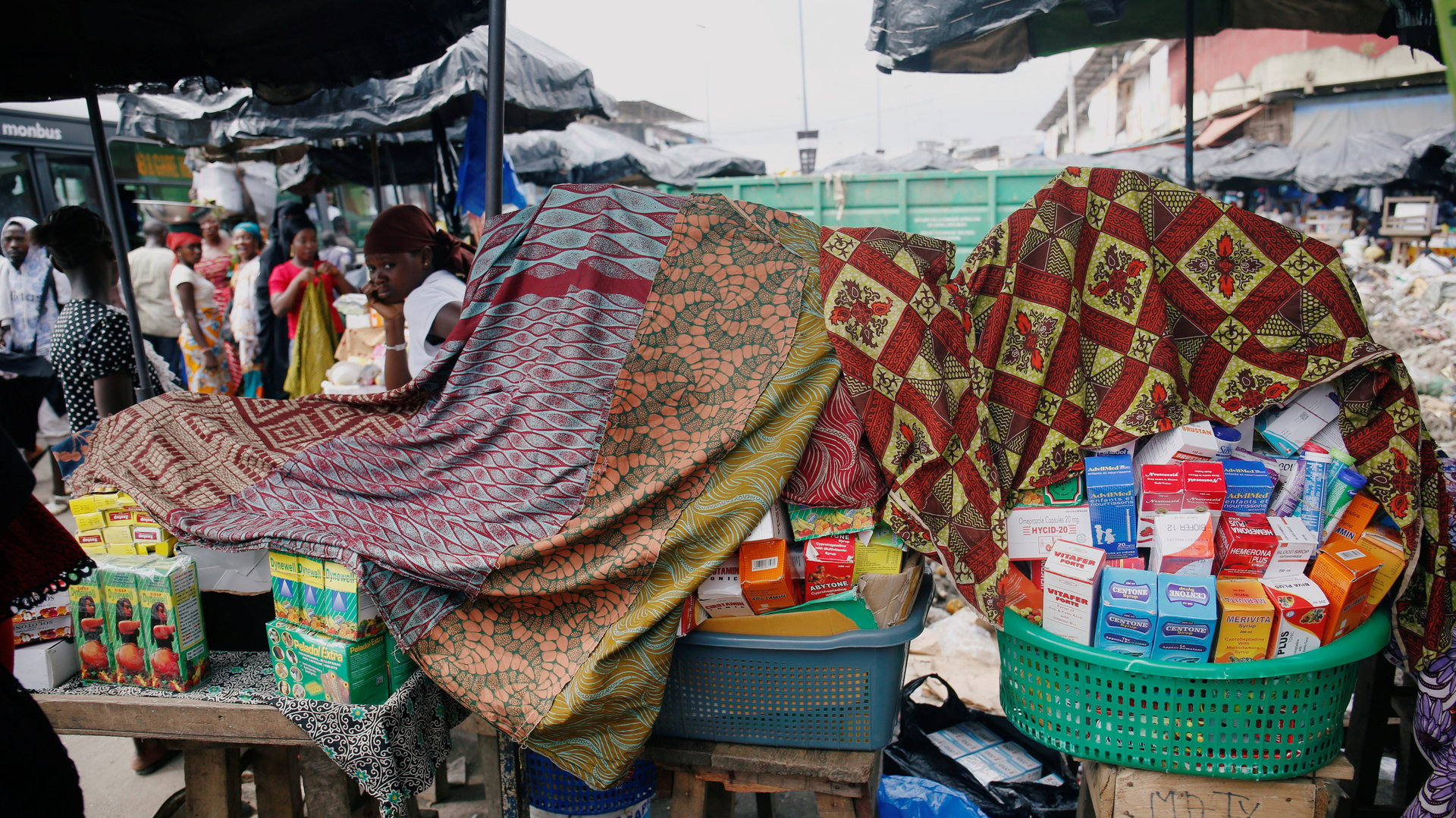African countries are trying to work together to stop a borderless fake drug problem
Not far from Hôtel 2 Février in downtown Lomé, the capital city of Togo, middle-aged men and women hawk medical disposables and assorted drugs outisde in the humid hot weather, not far from a pharmacy store. The packaging of the medicine looked visibly battered by the scorching sun and the cardboard was peeling leaving the expiry dates and batch numbers barely visible.


Not far from Hôtel 2 Février in downtown Lomé, the capital city of Togo, middle-aged men and women hawk medical disposables and assorted drugs outisde in the humid hot weather, not far from a pharmacy store. The packaging of the medicine looked visibly battered by the scorching sun and the cardboard was peeling leaving the expiry dates and batch numbers barely visible.
But even more troubling than the appearance is that closer inspection revealed some of the well known medicine brands being hawked are fake versions.
Ironically, less than a mile away, some of Africa’s leaders were meeting to try to end the scourge of fake medicine which claims the lives of more than 120,000 African children every year.
On Jan. 18, 2020, seven African heads of state, global public health partners and NGOS committed to collaborating and coordinating efforts against the trafficking of substandard and falsified medicines as well as other medical products under an agreement called the Lomé Initiative, coordinated by UK NGO Brazzaville Foundation.
Presidents Faure Gnassingbe of Togo, Macky Sall of Senegal, Yoweri Museveni of Uganda and representatives of heads of states of Ghana, Congo, Niger and The Gambia all signed the political declaration and framework agreement to stem the fake medicine problem in Africa. The hope is naturally that the scope of the initiative will expand beyond those countries.
Though a global problem, with about 10% to15% of all pharmaceutical products sold globally being falsified, the scourge of counterfeit medicine in Africa is particularly acute. The continent alone accounts for as high as 42% of globally detected cases of substandard and fake medical products, according to a WHO report.
The scope of the trafficking of substandard drugs and falsified medicine is wide and its reach overwhelming and difficult to trace, say experts. India and China, where most legal pharmaceutical products are produced, have often been cited as the major sources of counterfeit products as well, while Nigeria is said to be the key entry port for Africa.
Fighting the trafficking of fake medicines is a thorn in the flesh of African governments and healthcare systems because the continent has almost perfect conditions for a thriving illegal market. “In sub-Saharan Africa, all risk factors come together: governance is weak, provision of healthcare insufficient, the network of pharmacist too thin, a parallel market is practically tolerated, and people are poor,” said Dr. Innocent Koundé Kpeto, president of Togo’s pharmacists association.
The Lomé Initiative, which shows the political will of the heads of states, will be followed by new legislation criminalizing the trafficking and sale of fake medicines. The draft legislation is advancing a minimum 10-year jail term for offenders of fake drug-related crimes. In addition to the introduction of mechanisms to ensure the strict application of the new legislation, the initiative will ramp up calls for the signing of the Medicrime Convention and the Palermo Convention against transitional organized crime by African countries.
Togo’s president Gnassingbe expressed optimism the initiative will raise awareness with other African countries and the international community. “Fake medicine has often been regarded as a violation of intellectual property right, and not a crime.” Making it a criminal offense like other crimes, he underscored, will deter traffickers from the malpractice.
A rough ride
Jean-Louis Bruguiere, a former French judge noted for his work on anti-terrorism, suggested other initiatives to fight fake medicine in Africa have been fragmented. “But when a law is put in place with political will, it can easily be implemented.”
A review of legal systems of most African states shows criminal legislation against the trafficking of substandard and falsified medicines is either at a low level or absent. In cases where legislation exists, the penalties are weak and not backed by effective enforcement.
Also, there is new classified evidence transnational criminal organizations are getting involve in the trafficking of fake medicines as it is twice as profitable as human trafficking or of arms and hard drugs. Bruguiere said criminal organizations, especially in the Sahel, use the same routes and techniques in the trafficking of fake medicines as those of weapons.
National borders also need to be fortified against corruption to cope with the influx of fake medicine. Even high profile members of government have been involved in the trafficking, usually putting regulators in a tight spot. In December 2017, Beninoise MP Mohammed Atao Hinnouho was arrested after his home was raided and hundreds of cartons of fake drugs found.
And where some countries have become vigilant at their borders, the some production of fake medicine is shifting to being done on the continent. The inadequate technical capacities of healthcare systems to detect fake from standard drugs is also giving the fake medicine problem a green light. As Dr. Tedros Adhanom Ghebreyesus, WHO Director General told Quartz Africa, “the response has to be comprehensive” if the trafficking has to be put to an end.
Sign up to the Quartz Africa Weekly Brief here for news and analysis on African business, tech and innovation in your inbox